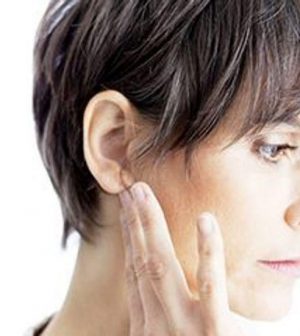- The Best Time of Day to Drink Bone Broth to Maximize Health Benefits
- 8 Ways to Increase Dopamine Naturally
- 7 Best Breads for Maintaining Stable Blood Sugar
- Gelatin vs. Collagen: Which is Best for Skin, Nails, and Joints?
- The Long-Term Effects of Daily Turmeric Supplements on Liver Health
- Could Your Grocery Store Meat Be Causing Recurring UTIs?
- Are You Making This Expensive Thermostat Error This Winter?
- Recognizing the Signs of Hypothyroidism
- 10 Strategies to Overcome Insomnia
- Could Artificial Sweeteners Be Aging the Brain Faster?
1 in 5 Avoided Health Care During Pandemic, Study Finds

One in five adults avoided seeking health care during the COVID-19 pandemic, even when they had symptoms suggesting the need for urgent medical attention, according to researchers in the Netherlands.
“Health care avoidance during COVID-19 may be prevalent amongst those who are in greater need of it in the population, such as older individuals,” a team led by Silvan Licher, of Erasmus University Medical Center in Rotterdam, reported.
The findings suggest the need for public information efforts to urge individuals who are most likely to avoid getting care “to report both alarming and seemingly insignificant symptoms” to a primary care doctor or specialist, the researchers wrote in the report published Nov. 23 in the journal PLOS Medicine.
Patient visits to both primary care providers and specialists declined during the pandemic, the findings showed.
To find out why, the researchers surveyed more than 5,600 middle-aged and older adults in Rotterdam.
About one in five (20%) said they avoided health care during the pandemic.
Of those, 36% reported symptoms that potentially warranted urgent medical attention, including limb weakness (nearly 14%), palpitations (11%) and chest pain (10%). No information was available on severity of symptoms.
But the investigators found that people most likely to have avoided health care included women; those with poor self-reported health; and those with high levels of depression and anxiety.
Lower educational level, older age, unemployment, smoking and concern about contracting COVID-19 were also associated with avoiding health care.
“One in five avoided health care during COVID-19 lockdown, often with alarming symptoms like chest pain or limb weakness,” Licher said in a journal news release. “Vulnerable citizens were mainly affected, emphasizing the urgent need for targeted public education.”
More information
The U.S. Centers for Disease Control and Prevention has more on COVID-19.
SOURCE: PLOS Medicine, news release, Nov. 23, 2021
Source: HealthDay
Copyright © 2026 HealthDay. All rights reserved.










